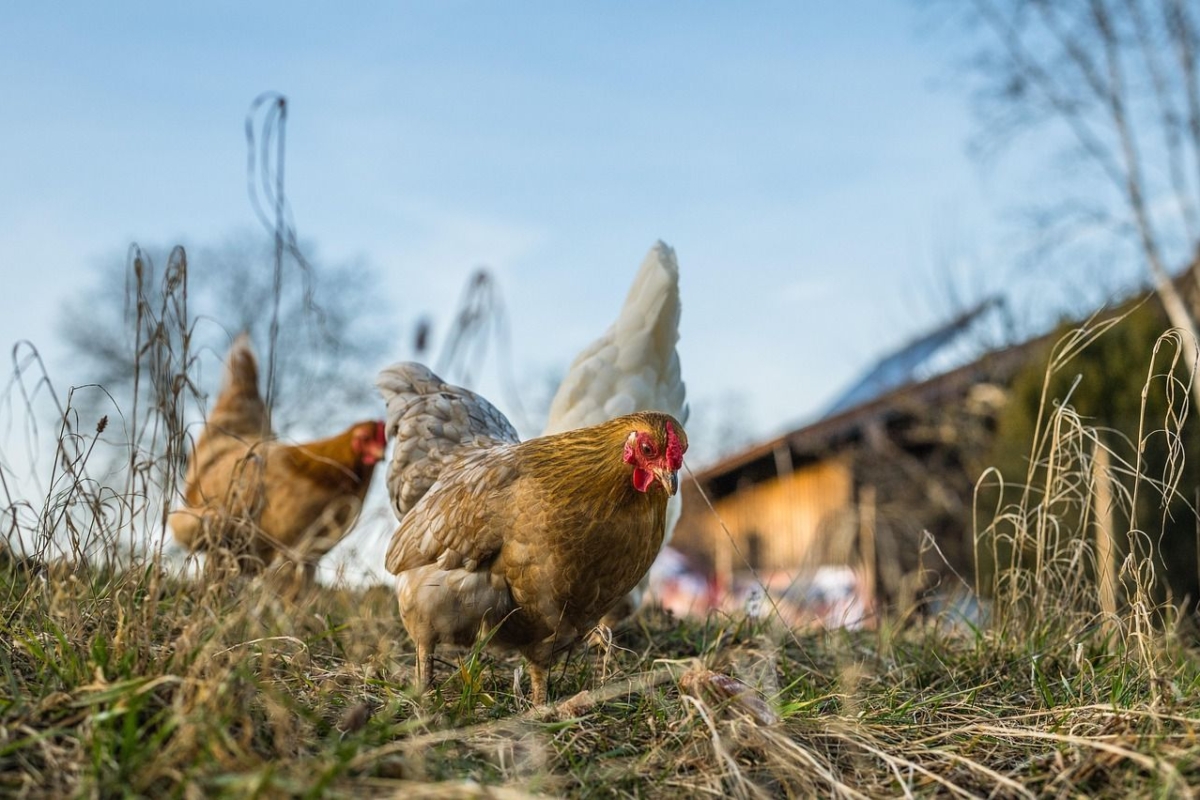Boredom in the chicken coop: What effect does it have on the flock, and how are mobile housing systems an effective solution?
Under natural conditions, chickens spend most of the day scratching, foraging, and exploring their surroundings. If they are without these activities, for example in closed housing or limited spaces, a seemingly trivial phenomenon quickly occurs: boredom. Contrary to appearances, a hen’s life is not just about laying eggs. They are curious and intelligent birds that need more than just food and a place to sleep each day. Although they don’t have a calendar, they can sense exactly when they are lacking stimulation. The result? Sometimes stress, frustration and even aggression towards other hens.
How can you tell if chickens are bored?
A lack of stimulation can lead to a number of problematic behaviours in chickens, which have a negative impact on their well-being and performance:
- Feather pecking (which can lead to cannibalism).
- Aggression within the flock and dominant behaviour
- Bullying weaker animals at the feed or water trough;
- Destruction of equipment in the chicken coop;
- Eating eggs;
- Excessive apathy or lethargy.
- Weight gain due to lack of exercise.
- Attempts to escape from the run.
This phenomenon intensifies especially in winter or when the flock has to be closed inside due to restrictions, such as an avian flu threat. Even a large, stationary run may be insufficient under such conditions. But don’t worry – a well-designed environment can help. It’s best if this environment moves. A mobile chicken coop that is regularly moved to fresh pasture is convenient for the farmer and a real playground for the birds.

1. A ground that encourages activity.
Chickens naturally like to scratch around in the ground. They search for grains and small insects, tidy up the litter and enjoy taking dust baths in the sand.
What helps them do this?
- Regular changes of pasture, so that they have a new area to explore every day.
- Dry sand or soil, which provides natural protection against parasites and is even more effective and pleasant when mixed with herbs.
- Natural materials such as leaves, straw and twigs smell wonderful and are ideal for scratching.

2. An inspiring space
No complicated constructions are required; simple, natural accessories are enough to liven up the run.
• Shrubs, tree trunks and boxes serve as observation points and hiding places.
• Straw bales, platforms and portable perches are ideal for jumping and resting.
Everything is easier with mobile housing: the chicken coop can be set up so that it always offers an interesting environment – a little shade, a little sun. Changes are actually possible every day! The ability to choose where to be, what to do and what to look at is extremely important for chickens.
3. Simple games with great benefits!
As previously mentioned, boredom is not enjoyable for chickens as it can lead to behavioural issues. However, you can turn a day in the chicken coop into an exciting adventure with a few clever tricks:
• Hanging vegetables
A cabbage on a string? For chickens, it’s like having a gym and a canteen all in one. They have to work hard to get their food, and that’s exactly the point!
• Sensory sprinkles:
Scattering grains under leaves or sawdust keeps the flock busy for a long time. This simple, natural solution is also very effective.
• Toys made from recycled materials
Old bottles with holes and grains or cardboard boxes with tunnels make great homemade ‘gadgets’ that can work better than expensive toys from the shop.

4. The relationship with the caretaker: it’s about more than just feeding!
Can a hen become friends with you? Yes, especially in smaller, mobile flocks. Through frequent contact with humans, chickens learn to recognise their caretaker’s face and respond to their voice. They will even follow you around the run!
With a little patience and treats, you can teach them to:
- come when called;
- jump onto your lap;
- respond to simple gestures.
This is not only nice, but also practical, as it makes caring for them and monitoring their health easier and builds trust.
You can see the effects of the above points with the naked eye!
A well-organised, interesting environment for chickens means:
- less stress,
- better condition;
- stable laying performance.
It also means a healthy, happy flock.
It also improves your customers’ perception of your business.

The approach to animal husbandry today should no longer be based only on production results. The key lies in understanding the natural behaviour and needs of animals, and in creating conditions that promote their well-being. A mobile chicken coop provides chickens with freedom of movement, a varied environment, and the opportunity to explore. This eliminates boredom and promotes health, strengthening the balance in the flock and achieving better laying performance.
When a hen feels good, everything works better – from her body to your business.
It is important to remember that today’s consumers are very discerning, so maintaining your business’s image is a worthwhile investment.



